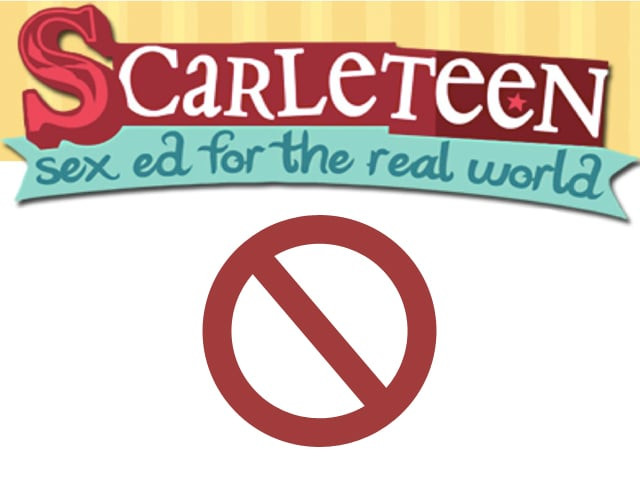Pakistan blocks access to teen sex-ed site
Pakistan has blocked access to Scarleteen, a sex education website geared towards teenagers.

Pakistan blocks access to teen sex-ed site
In an alarming development, the website that has provided sex education and support worldwide since 1998 has apparently been banned as part of the PTA's attempt to shut access to all pornographic content to Pakistani internet users.
Scarleteen, which was established by author, activist, feminist and internet publisher Heather Corinna, was set up to be an "inclusive, healthy, and sex-positive sex ed resource for teens" online.
According to a review by Common Sense Media, Scarleteen, "includes information that's geared toward younger teens (articles about self-esteem and puberty) as well as more "adult" topics that aren't normally addressed in sex-ed classes (like sexual pleasure). The site identifies as feminist and pro-choice and explains its philosophy as "a nonjudgmental and unbiased attitude of acceptance, tolerance, and understanding for young people, whether they choose to be sexually active or not."
The government has recently cracked down on content that is deemed offensive, blocking up to over 13,000 pornographic websites and was also considering certain words in SMSs.
The judiciary and Pakistan Telecommunication Authority (PTA) had taken action against porn websites by blocking or banning access to them in the country, following multiple petitions filed by the citizenry.



















COMMENTS
Comments are moderated and generally will be posted if they are on-topic and not abusive.
For more information, please see our Comments FAQ